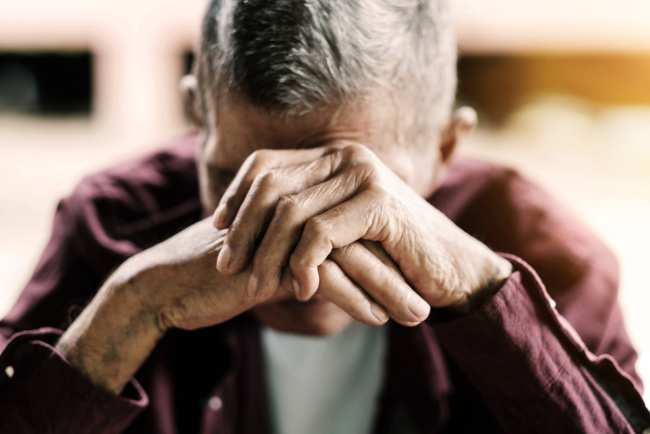If you’re one of the millions of Americans with a loved one who has dementia, it may seem as if his or her symptoms get worse at night. And you may actually be right.
Researchers studying dementia have found that those with the condition often experience a sensation known as “sundowning,” which causes symptoms to worsen as the day goes on.
Let’s take a look at what sundowning is — and how you can manage its effects in a loved one living with dementia.
Defining sundowning
The concept of sundowning is actually probably a familiar one to you, if you think about it. Think back to childhood — or even now — when you’re sick with something like a head cold. As the day goes on, your symptoms often seem to get worse, leaving you often feeling just plain awful in the evening.
When we talk about sundowning, we’re talking about a pattern of confusion and memory loss that occurs in the late afternoon and evening. This phenomenon is also called “Sundown Syndrome.”
When someone is sundowning, he or she may experience a full range of dementia-related symptoms, including:
- Agitation
- Restlessness
- Confusion
- Disorientation
- Mood swings
- Delirium
These symptoms may seem to come out of nowhere, particularly if the affected person is only in the early stages of dementia.
While sundowning is most commonly seen in those with Alzheimer’s disease or another type of dementia, it is also seen occasionally in seniors who don’t have dementia.
The causes of sundowning
While sundowning is a known issue, researchers still aren’t entirely certain what causes it. It’s thought that the late-day confusion may be linked with the sun going down — hence “sun downing.”
The reduced lighting and increased shadows that mark afternoons and evenings are thought to be contributors.
Beyond lighting, though, researchers also believe that excessive fatigue, any disruption of the body’s internal clock, difficulty separating dreams from reality, and even medical conditions like a UTI may also be linked with sundowning.
How to manage sundowning
Because researchers still aren’t entirely sure what causes sundowning, there isn’t really a foolproof way of preventing it from occurring. But if it seems to be happening often in a loved one, there are steps you can take to help minimize it.
- Create — and stick to — a schedule. This is actually really important for anyone dealing with dementia. While it may seem like it wouldn’t matter as a person experiences memory loss, having a schedule can help a person retain a sense of control and comfort. Beyond that, though, creating a schedule will help you keep the balance of activities like appointments in the early portion of the day. By doing that, your loved one will more likely be at his or her best.
- Set up an optimal sleep routine. To help limit the effects of sundowning, it’s important for a person with dementia to get plenty of quality sleep. Follow the basics of sleep hygiene — make sure the bedroom is cool and dark, limit alcohol and caffeine in your loved one’s diet, keep the evening meal relatively small and create a calming bedtime routine. To make sure your loved one sleeps at night, try to minimize sleeping during the day.
- Light things up. Because a person who sun downs can be negatively affected by the diminished light associated with nighttime, close blinds and curtains when the sun goes down and turn lights on throughout the house. You may also want to talk with a doctor about whether light therapy might be beneficial. It’s been shown as effective in helping reduce agitation among some people with dementia.
- Make things comfortable. Unfamiliar, uncertain or frightening situations, like the dark, are known contributors to sundowning. So, try to maintain a sense of calm with your loved one, particularly in the evening hours. Instead of watching TV, which can be overly stimulating, consider playing familiar, gentle music. A person with dementia may also find comfort in cuddling with a beloved pet or a stuffed animal in the late-day hours.
If a loved one seems to be sundowning, talk with a doctor about what he or she is experiencing.
Berneet Kaur, MD is a neurologist with Erlanger Memory and Aging Services. Learn more about Erlanger Memory and Aging Services here.







